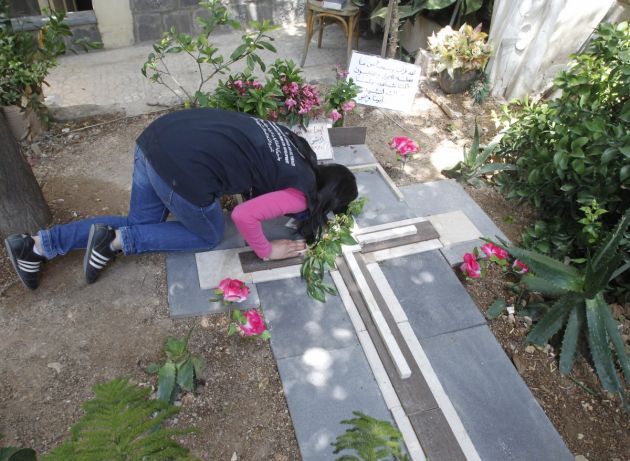US says in 2013 world had worst religious displacement in recent memory

The United States has reported that in 2013, millions of Christians, Muslims, Hindus, and others were forced from their homes because of their religious orientations with the world experiencing the largest displacement of religious communities in recent memory.
The International Religious Freedom Report, released by the Department of State, cited countries such as Syria where hundreds of thousands of Christians left their country to escape violence,
"In Syria, as in much of the Middle East, the Christian presence is becoming a shadow of its former self.
"After three years of civil war, hundreds of thousands fled the country desperate to escape the ongoing violence perpetrated by the government and extremist groups alike.
"In the city of Homs the number of Christians dwindled to as few as 1,000 from approximately 160,000 prior to the conflict," the report said.
The same is true in Central African Republic where violence between Christians and Muslims resulted in thousands of deaths and displacement of more than a million people.
In Sudan, the government prohibited conversion from Islam to another religion, denied permits for churches, closed or demolished churches built without permits, and failed to provide legal remedies for some instances of religious discrimination.
RUSSIAN LAW AGAINST 'EXTREMISM'
The report noted that in Russia, the government used a new law against "extremism" and changes to existing laws to further restrict the activities of members of minority religious groups, including making it illegal for foreigners to participate in religious organizations.
The government continued to grant the Russian Orthodox Church a privileged position, but generally allowed other established Judeo-Christian groups to practice their beliefs freely.
Police across the country participated in raids on private homes and places of worship of minority religious groups, such as Jehovah's Witnesses and followers of Sunni theologian Said Nursi.
In Myanmar, Muslim persecutions continue with constant harassment, hate speeches, and discrimination by Buddhist extremists. Anti-Muslim violence led to 100 deaths and 12,000 individuals evicted from their homes in Meiktila, Myanmar.
The report stressed that many individuals around the world experienced discrimination, violence, and abuse because of their beliefs.
Shia Muslims in countries like Pakistan, Egypt, and Saudi Arabia faced threats and harassments.
Hindus and other religious minorities in Bangladesh faced attacks amidst political unrest while mosques and churches were destroyed by Buddhist nationalist groups in Sri Lanka.
In China, Falun Gong practitioners were tortured and imprisoned and harassments of house church members continued.
The report also noted that anti-Semitism is also prevalent throughout Europe. This is seen on the Internet and in soccer stadiums "leading many individuals who are Jewish to conceal their religious identity."
The report also mentioned governments that subject religious groups to repressive policies and laws.
"North Korea stood out for its absolute prohibition of religious organizations and harsh punishments for any unauthorized religious activities, the report said.
"Governments in countries like Saudi Arabia, Iran, Sudan, China, Cuba, Tajikistan, Turkmenistan, and Uzbekistan were among those imposing discriminatory policies against religious groups.
Despite the seemingly negative picture, the report made mention of instances where the religious groups united to fight against discrimination.
Mosque attacks in Britain led an orthodox Jewish community to help Muslim leaders protect mosques. In Pakistan, Muslims helped protect Christians by forming human chains around churches.
In these "momentary glimpses of progress, there is much work to be done," the report stressed.